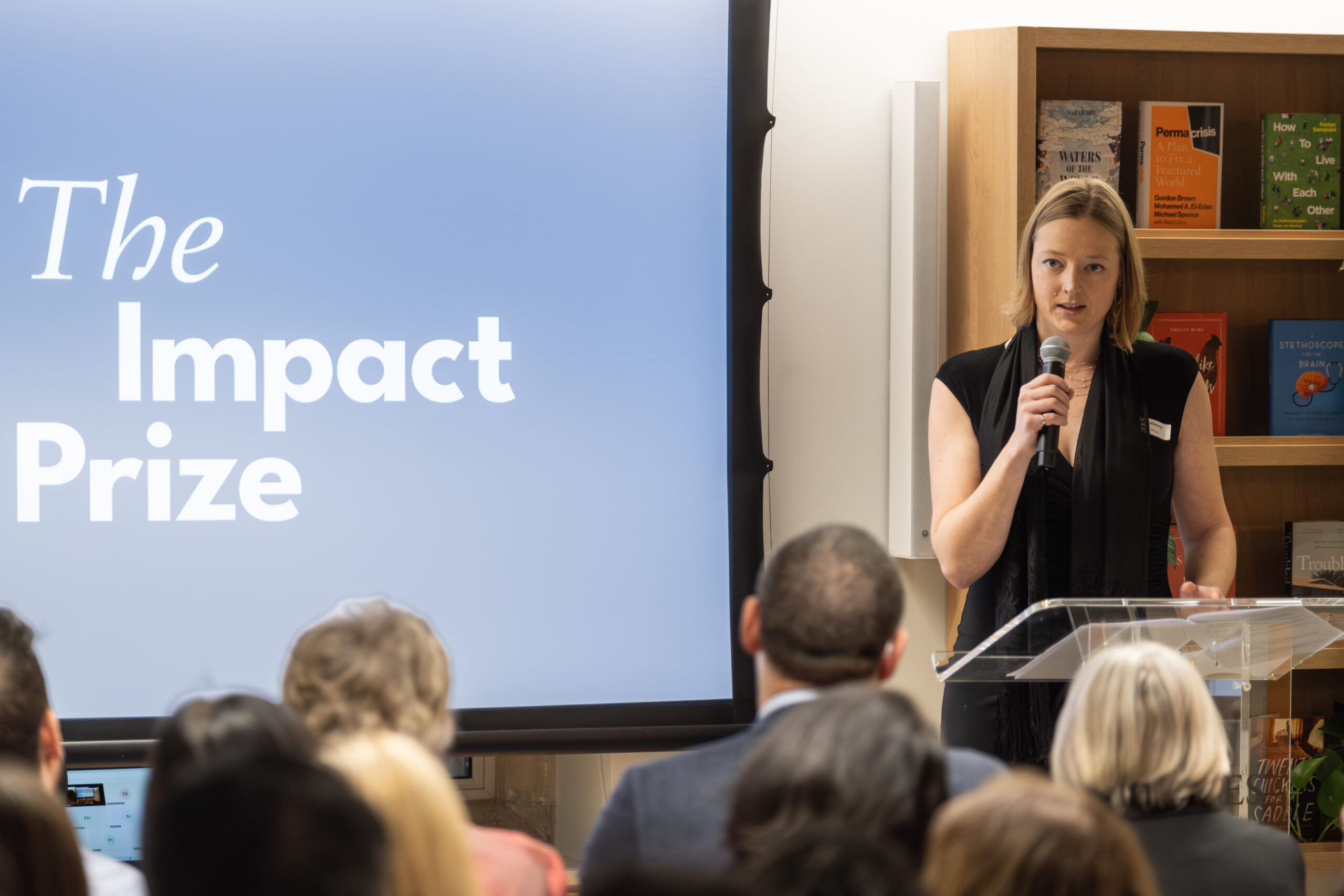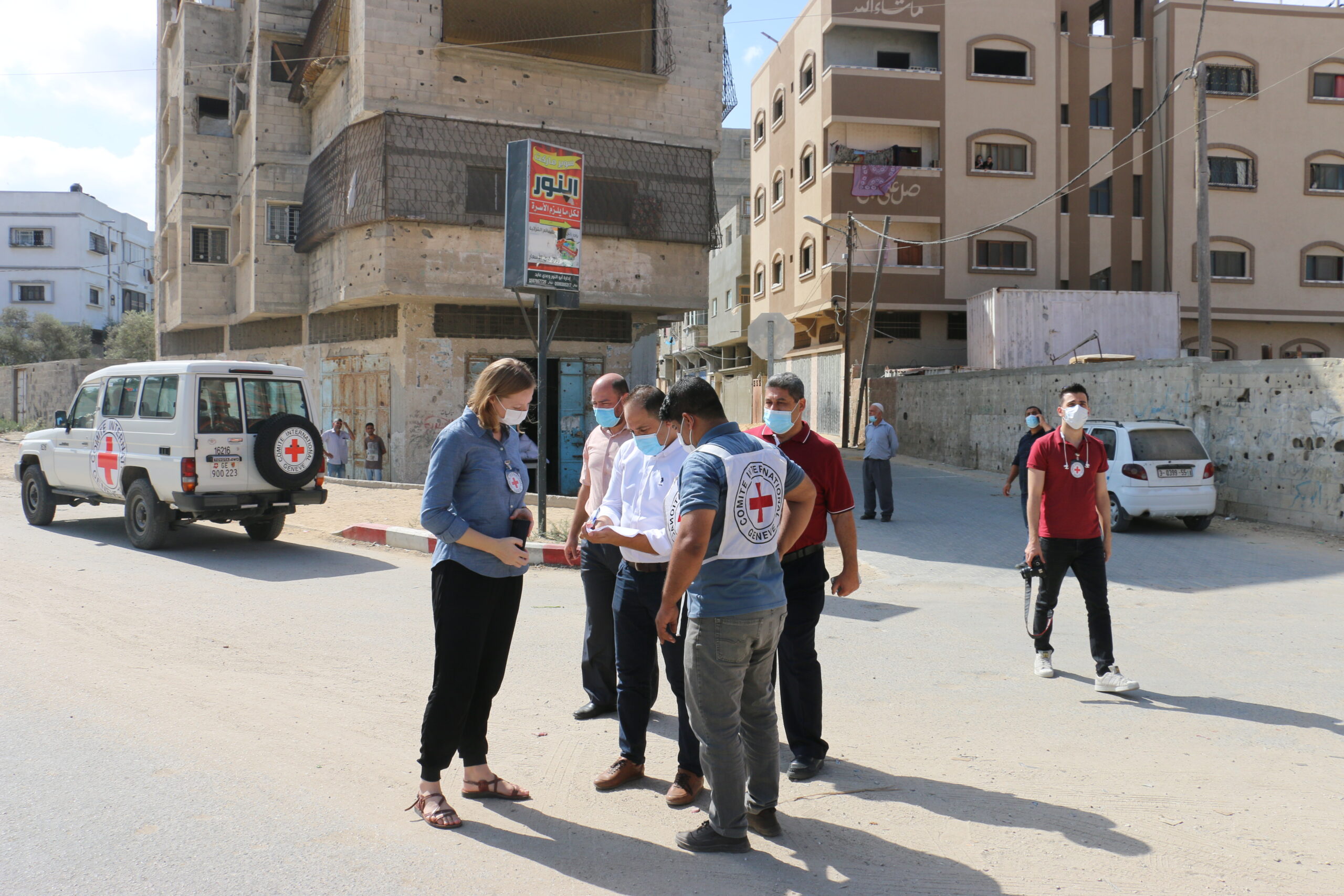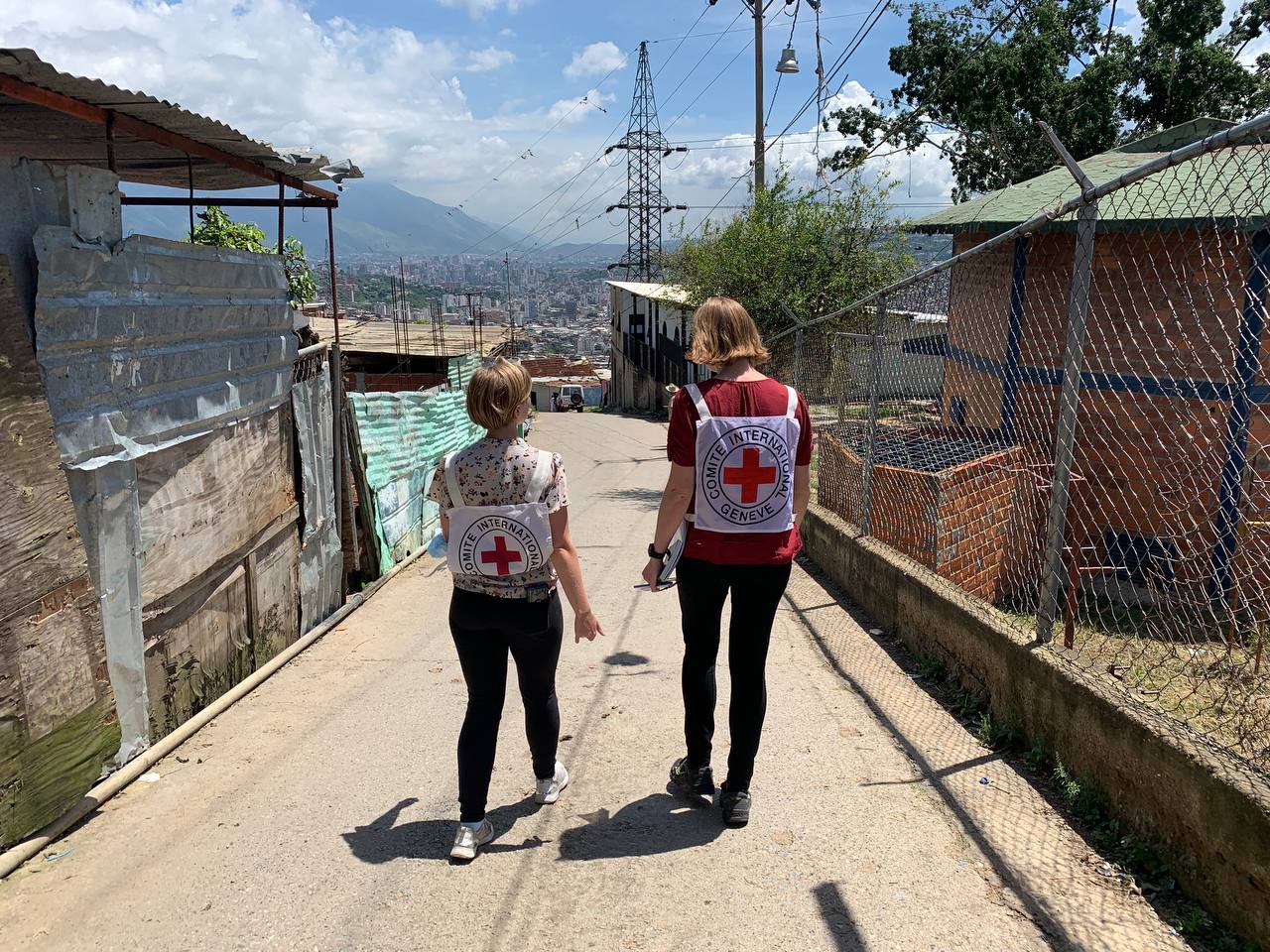
Impact Prize winner Emma Houiellebecq on developing a new systems-based approach to building resilience in conflict zones
We are looking to identify the root cause of problems and vulnerabilities in the system. Often you find that a problem is actually a symptom of something else.
Emma Houiellebecq
Emma Houiellebecq’s PhD explores a new systems-based approach to building resilience in conflict regions which takes into account the whole chain of political, economic, social and technical issues that affect vital infrastructure.
Through fieldwork in some of the world’s most vulnerable regions – Ukraine, Gaza, Lebanon and Venezuela – she has honed her work to ensure that electricity and water supplies are maintained even in the toughest conditions. Her previous work with the International Committee of the Red Cross (ICRC) on electricity supply in Gaza helped ensure that a hospital in Khan Younis remained operational for months after the conflict escalated in October 2023.
Emma’s broad thinking on resilience and her on-the-ground experience are what has made her among the eight winners of the Gates Cambridge Impact Prize.
Social justice
Her interest in social justice began early. Emma grew up in Canada and was a serious student, but was also on many sports teams and joined her secondary school’s social justice club as soon as it was set up in 2006. She was in part motivated to join after seeing reports on the 2004 tsunami when she was 13. “It was one of the first times I really saw the effects of a massive natural disaster and it was devastating,” she says. The club fundraised for NGOs and raised awareness about social justice issues across the school. Emma remained in the club for the rest of her time at secondary school.
Emma excelled in STEM subjects and chose engineering as a potential career when her skillset was matched to it. She applied to the University of British Columbia to study Engineering and won a full scholarship for its Okanagan campus. At university her interest in social justice and international development grew as she became involved in setting up an Engineers Without Borders chapter. Between her second and third year Emma worked for three months in Eswatini in southern Africa, teaching maths and science to secondary school students. It was her first taste of international development work and she really enjoyed it. “The classrooms were very basic and so you had to be creative with what you had and find ways to demonstrate experiments,” she says. Her next internship the following year was with Engineering Ministries International [EMI] in Kigali, Rwanda, where she was part of a team of engineers and architects designing a conference centre for a local NGO, and at EMI’s headquarters in Calgary.
After graduation
 As part of her undergraduate course, Emma did a research project on sustainable building assessments, graduating in 2013. Even then she knew she wanted to work for the Red Cross and that she needed three years’ minimum of work experience to get in. She set about attaining this on graduation, moving between structural engineering and a focus on water supply systems.
As part of her undergraduate course, Emma did a research project on sustainable building assessments, graduating in 2013. Even then she knew she wanted to work for the Red Cross and that she needed three years’ minimum of work experience to get in. She set about attaining this on graduation, moving between structural engineering and a focus on water supply systems.
Her first job was in southwest Uganda where she designed gravity-flow water systems for six months. She loved it. “We were camping in a beautiful area and working with local teams to identify water sources, track them to communities and then do design work. It felt very direct,” she says.
After that Emma took a structural engineering job with Equilibrium Consulting, working with architects on structural design projects in Canada and the US for two years. The focus of her company was on innovative timber structures and pushing the timber technology boundaries. She worked on the John W. Olver Design Building at the University of Massachusetts Amherst, the first mass timber building of its kind in the US. The building won the World-Architects Building of the Year award in 2017.
Master’s course
Emma then applied for a master’s at the University of Cambridge’s Engineering for Sustainable Development programme – one of the few courses that combined engineering and sustainable development at the time. It was her first time as a Gates Cambridge Scholar and she says the course and experience at Cambridge were a pivotal moment for her. “It took me from a normal career in engineering and changed my trajectory,” she says, citing the mix of people and perspectives she was exposed to and the growing sense of self belief she acquired at Cambridge. “It gave me confidence to go for what I wanted and opened up doors,” she states.
Her master’s dissertation focused on recovery from the 2015 Nepal earthquake. She travelled to Nepal to study how resilience strategies were being incorporated into infrastructure recovery efforts such as water, electricity, transport and telecommunications and how that could be improved.
Red Cross
 After her master’s, Emma applied to the International Committee of the Red Cross and was posted to South Sudan in 2017 for a year to implement projects to improve water supply and infrastructure for hospitals and prisons in the southern region. The complex, fragmented and unpredictable nature of the conflict made working there difficult and dangerous. The roads between the region’s small towns were controlled by militia groups and so Emma had to be flown into the towns and work there for a few days at a time before returning to Juba. There were daily curfews due to the risk from armed groups.
After her master’s, Emma applied to the International Committee of the Red Cross and was posted to South Sudan in 2017 for a year to implement projects to improve water supply and infrastructure for hospitals and prisons in the southern region. The complex, fragmented and unpredictable nature of the conflict made working there difficult and dangerous. The roads between the region’s small towns were controlled by militia groups and so Emma had to be flown into the towns and work there for a few days at a time before returning to Juba. There were daily curfews due to the risk from armed groups.
After South Sudan, Emma was posted to Gaza, a post she herself had requested. There she switched from a focus on rural water supply in South Sudan to building urban resilience through ensuring water and electricity supplies to households and critical infrastructure, such as hospitals, and prisons. She worked in Gaza for two years from 2019 to 2021. She says there were periods of relative calm which alternated with periods of conflict escalation when rockets and missiles would be fired between Israel and Gaza and her team would go into lockdown. In the last two weeks of her stay in Gaza, however, there was an all-out war. “It was beyond anything I had seen before. There was bombing all around us,” she says.
She adds that some of the projects she worked on in Gaza helped build the resilience needed to keep infrastructure functioning at least for a while after the bombs began to fall following the 7th of October 2023. She cites, for instance, a back-up power system designed for a hospital in Khan Yunis which meant it could continue operations for several months into the conflict.
Systems thinking
While in Gaza, Emma had applied to do her PhD to continue building on the idea of using a systems thinking approach to strengthen resilience. “The pilot initiative we began had just been scratching the surface of its potential,” she says. She wanted to look at it in more depth and got the Red Cross on board with her PhD research.
 She returned to Cambridge on a second Gates Scholarship and began her PhD in Engineering in 2021. During the course of her studies Emma has been to Venezuela twice, Ukraine and Lebanon earlier this year, and back to Gaza in February 2023. All are places where the Red Cross has been operating due to humanitarian need.
She returned to Cambridge on a second Gates Scholarship and began her PhD in Engineering in 2021. During the course of her studies Emma has been to Venezuela twice, Ukraine and Lebanon earlier this year, and back to Gaza in February 2023. All are places where the Red Cross has been operating due to humanitarian need.
In all these very different settings, Emma has been applying a systems mapping methodology to see how water and electricity services are being impacted by the fragility of the political and security situations. The mapping looks at causal relationships, for instance, the interactions and interdependencies affecting water supply. “It is not just about technology issues, but about the political, economic and social background,” says Emma. “We are looking to identify the root cause of problems and vulnerabilities in the system. Often you find that a problem is actually a symptom of something else.”
She gives an example in Venezuela where there were a lot of power outages affecting hospitals. One reason was that much of the country’s electricity supply was produced by a huge dam. Because of the political and economic tensions in the country, many people had migrated to the gold mining region which is located along riverbanks upstream of the dam. The gold mining process results in high levels of sediment in the river, which has damaged some of the hydro power turbines. This was not being publicly acknowledged because gold mining was so important economically following oil sanctions. “If you only look at the problems within the scope of the electricity sector, you miss this broader picture,” says Emma. That means back-up generators are only a short-term solution, she says – the longer term one is providing people with alternative ways of earning a living.
In the Donetsk basin in eastern Ukraine, one problem with the water supply was that it was highly centralised. The vulnerabilities of the system have been compounded by a brain drain as many technical personnel in the water sector have left the region or joined the military. Local rivers are contaminated by military residue and ground water is too limited to provide a long-term solution. Emma says there is a lot of creative thinking going on, for instance, about using alternative water sources and differentiating water supplies for drinking or domestic uses. “It is impressive how resilient the Ukrainians are as a people. They have a lot of adaptive capacity,” she says.
Emma [2016] is now writing up her PhD. While she has been at Cambridge, she has been involved in the Gates Cambridge community – as external officer on the Gates Cambridge Scholars Council – and says it has been very supportive.
She says: “I am very proud of the impact my research has had both on the ground in the countries I have worked in and on the ICRC’s operational strategy in terms of shifting towards more systemic, resilience-building approaches in complex protracted crises.”












